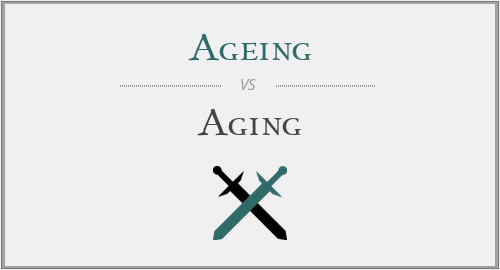
Grammar Tips & Articles »
Ageing vs. Aging
This Grammar.com article is about Ageing vs. Aging — enjoy your reading!
- 2:55 min read
- 56,967 Views
Font size:
Citation
Use the citation below to add this article to your bibliography:
Style:MLAChicagoAPA
"Ageing vs. Aging." Grammar.com. STANDS4 LLC, 2024. Web. 24 Apr. 2024. <https://www.grammar.com/ageing_vs._aging>.




Have a discussion about this article with the community:
Report Comment
We're doing our best to make sure our content is useful, accurate and safe.
If by any chance you spot an inappropriate comment while navigating through our website please use this form to let us know, and we'll take care of it shortly.
Attachment
You need to be logged in to favorite.
Log In